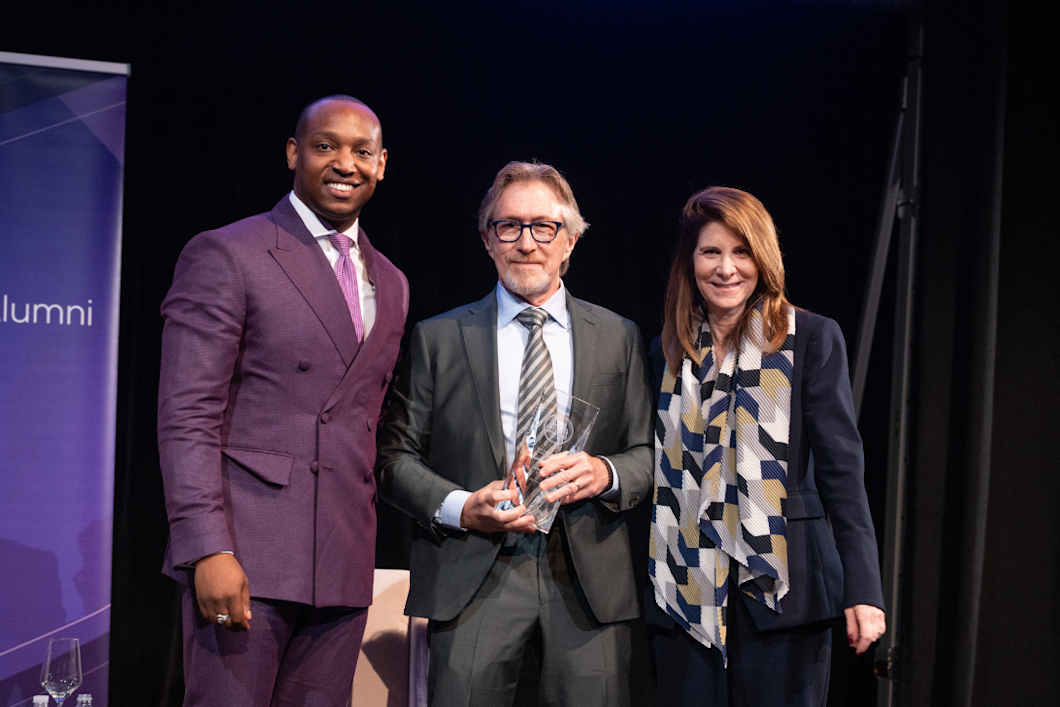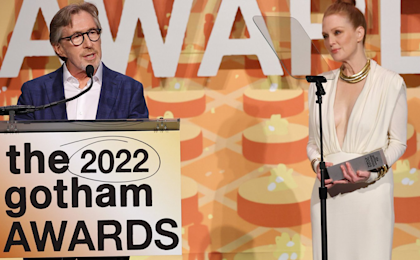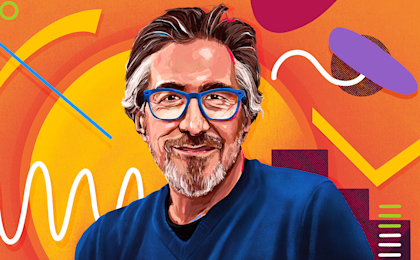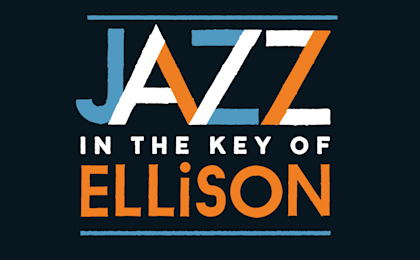Watch Audible Founder Don Katz Honored by NYU for His Legacy of Innovation

Audible founder Don Katz accepted the 2024 Distinguished Alumni Award from his undergraduate alma mater New York University on April 14. In the day’s remarks, included below, Katz thanked “an institution that in turn has given me so much and whose teachers helped lay the foundation for the eventual founding of Audible.”
Those teachers included Ralph Ellison, who Katz credits for giving him “the confidence to be a writer” and whose “deep understanding of the American oral tradition as the voices that became distinctively American literature was key to the Audible audio aesthetic from the company's origins.” Katz added, “I have noted many times the too often-underestimated impact of a great teacher on the course and character of a life.”
Katz was introduced by Nikolai Wolfe, the President of NYU’s Alumni Association, who praised the way “Audible catalyzed a generation of new possibilities and opportunities for local residents” by moving our headquarters to Newark in 2007 and called out Katz’s “steadfast commitment to innovation and inclusivity that revolutionized the way we interact with literature, ensuring audiobooks are accessible to millions worldwide.”
Watch the remarks, or read them in full below.

Nikolai Wolfe’s introductory remarks
An award-winning author and journalist, a visionary entrepreneur and creator, Don Katz has profoundly shaped the literary landscape.
Don is a masterful storyteller. From coverage of American institutions to international revolutions, his work is captivating, articulate, and intellectually stimulating, and has found its way into the hearts, minds—and earbuds—of readers and listeners across the globe.
Through his pioneering work founding Audible, Don’s steadfast commitment to innovation and inclusivity has revolutionized the way we interact with literature, ensuring audiobooks are accessible to millions worldwide. Through Don’s work, he has not only elevated the art of storytelling but has fostered a deeper connection between authors and audiences. His dedication to expanding the boundaries of entertainment exemplifies the power of entrepreneurship to shape industries and enrich lives.
In addition to his literary and business contributions, under Don’s leadership, Audible has intentionally and actively served the community they call home. With their relocation of headquarters to Newark, NJ in 2007, Audible catalyzed a generation of new possibilities and opportunities for local residents.
In recognition of Don’s extraordinary professional achievements, his commitment to community service, and his legacy of development and innovation, this award is presented with the deep admiration and respect of his fellow alumni.
Don Katz’s remarks
Thank you, Nikolai. Dr. Suzuki and President Mills.
I know everyone is thinking upon viewing those historical images—that I haven’t changed a bit.
My NYU roommate and friend, Ed Lau—who was depicted in the clip and helped me through computer science courses so long ago—couldn’t be here. But Audible’s first deep tech leader, Guy Story—who has a computer science graduate degree from NYU—is here today, along with most of the talented Audible Global Leadership Team… including Stern- and NYU-super-alum, Susan Jurevics.
Also here today is my ally, confidant, truth-teller, and wife of 40 years, Leslie Larson. I find myself at an advice-giving point in my life, and I would recommend that anyone who wants to spend their days working without a net, pursuing visions of the possible that others sometimes think quixotic, should try to find a true and loving partnership like the one I’ve had with Leslie.
I have noted many times the too-often-underestimated impact of a great teacher on the course and character of a life. The most dedicated and talented teachers are rarely remembered with their names on buildings, but they can and often do stay alive in the minds of their students after they are gone.
This is certainly the case for me, and all the more acute since my experience of my undergraduate years was blindsided by my beloved father’s sudden death while playing tennis at only 47. I returned to NYU in many ways traumatized after this loss. The humanity and caring I recall from NYU teachers who are no longer with us will live forever for me.
My brilliant Faulkner professor, Ilse Du Soir Lind, who taught at NYU for 61 years—beyond her literary tutelage which encouraged learning to read Faulkner as if it were a foreign language—realized I was in trouble and basically forced me to seek psychological support that was life-changing over many years.
Professor Sumner Rosen—who taught Metropolitan Studies and social policy—drew me close, making sure I had the right internship, and that I understood urban poverty and the life and death of cities, as Jane Jacobs put it at the time, in ways that inform my thinking and action to this day.
My political science professor, Dr. Bill Fleming, basically walked me into his alma mater, The London School of Economics after graduation, even though I was an English major, and he invested his time and caring in what happened to me after I left NYU.
As the film clip conveyed, Ralph Ellison gave me the confidence to be a writer, but when he took me on as his tutee after my father died and stayed with me, encouraging me and submitting me for fancy scholarships and grants, I became aware that his own experience of losing his father when he was young had created a special connection.
Ralph’s deep understanding of the American oral tradition as the voices that became distinctively American literature was key to the Audible audio aesthetic from the company’s origins. Ralph taught me to hear the improvisational jazz in the best writing and appreciate the complex collage, as he called it, of a nation based on the ideal of equality constantly remaking and expressing itself.
I was able to co-produce a critically-acclaimed evening of Ralph’s words, images, and the jazz he loved – called Jazz in the Key of Ellison—along with Wynton Marseilles, Professor Robert O’Meally, and the New Jersey Performing Arts Center that went on the road. A soaring wall inside Audible’s Innovation Cathedral in Newark displays Ralph’s words: “Words are everything. The key to the rock, the answer to the question.”
I’d like to think that the way I have lived—and Audible’s conveyance of literate listening into millions of peoples’ lives—are in so many ways, I hope, lasting thank you’s to Ralph Ellison. As I said, never underestimate the impact of a great teacher on the course and character of a life.
I think often about attending NYU during a time of resistance to immoral status quos domestically and internationally. There was indeed “music in the cafes at night and revolution in the air” when I was an undergraduate, and I can recall vividly the huge demonstrations in the city, and the intensity of debate inside class and in cafeterias and dorm rooms. I do hope that what Dean Suzuki called venues for “limitless possibilities” at NYU in the film clip can transcend the many current challenges to our higher educational bastions as vibrant forums for words and ideas that reflect a multitude of intellectual and moral perspectives.
Thank you for this honor.


